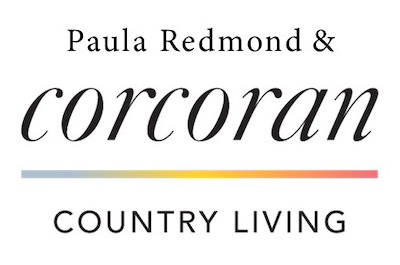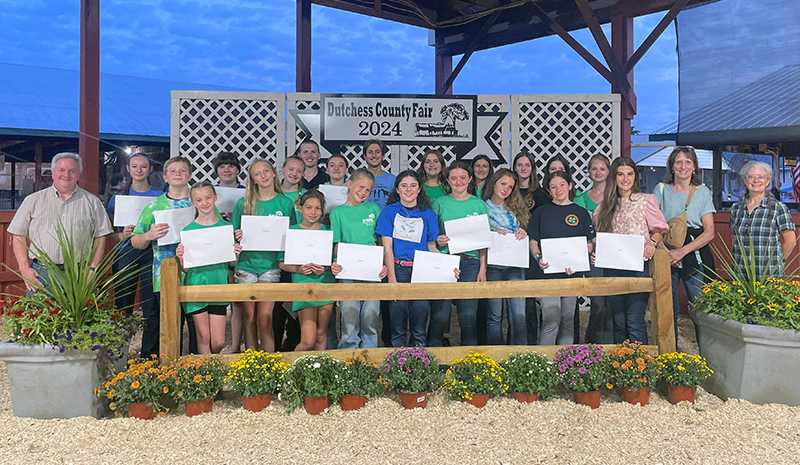 The future looks bright as 4-H youths receive scholarships from the DLC.
The future looks bright as 4-H youths receive scholarships from the DLC.“This means so much,” said 14-year-old Margot LaPorte of the scholarship award she received on August 24 from the DLC. This was her third year applying for and receiving one of the scholarships, which assist 4-H youth with expenses from attending the Dutchess County Fair. Margot will be using her award to pay for insect specimens and interactive presentation materials used in her Entomology Club displays. The application requires applicants to write an essay, and this year 4-H’ers chose from three topics: ways that livestock farmers can positively impact their land and natural resources, three ways to make the world a healthier and happier place, or an outdoor place in Dutchess County that they connect with. The twenty-two applicants wrote thoughtful and moving compositions, and excerpts from their essays can be read and enjoyed below.
The scholarships were handed out to the winners at the 4-H Barn Bash at the Dutchess County Fair, where 4-H’ers and their parents gather to celebrate their accomplishments. DLC President Becky Thornton dedicated the scholarships to long-serving member of the DLC Board of Directors Dave Tetor, who had passed away just a few days before and was a lifelong voice for the agricultural community, a guiding light for the DLC and – perhaps his greatest accomplishment! – one of the originators of the supremely popular 4-H Milkshake Booth at the Dutchess County Fair.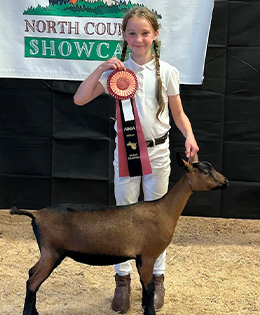 Jessa Carpentieri
Jessa Carpentieri
- Age 10
Stop letting people buy farmland and destroying the property. Stop being cruel to animals - they don't deserve it.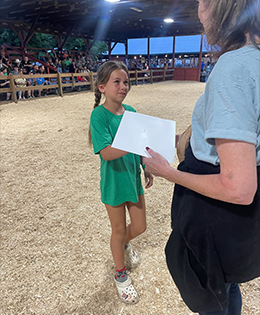 Lyvia Underhill
Lyvia Underhill
- Age 10
Bloodstock Farm has one of the most diverse habitats for animals in the area. It is good to protect farms like this so we know how our foods are made and where it comes from.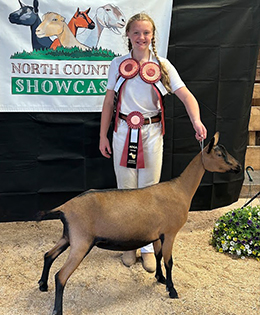 Kendra Carpentieri
Kendra Carpentieri
- Age 12
I would change the law and not let people buy farmland and break it up to put houses and apartments on that land.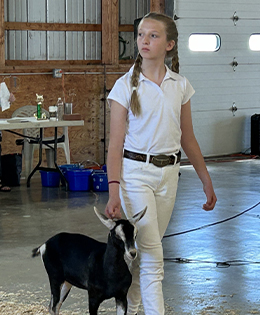 Caitlyn Cassidy
Caitlyn Cassidy
- Age 12
We all can recycle. We should recycle because it can be reused and created into something new, instead of just throwing it away.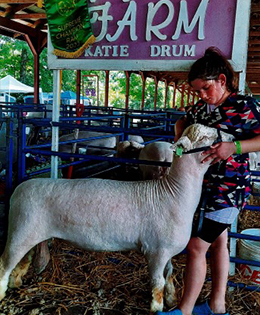 Katie Drum
Katie Drum
- Age 12
Livestock farmers can thrive with hard work and determination, while positively impacting their environment and natural resources with rotational grazing.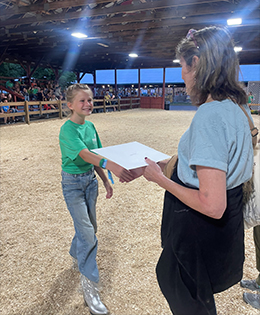 Tessa Mashburn
Tessa Mashburn
- Age 12
On my own small farm, I’ve seen the benefits of regenerative practices first-hand. My goats and rabbits play a crucial role in rebuilding soil health and promoting native plants. I hope I’m doing my part to regenerate the lands we call home and leave it better for future generations like myself.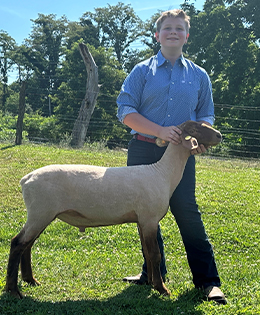 Tavin Pennock
Tavin Pennock
- Age 12
Livestock farmers have many options to help themselves be eco-friendly while maintaining their livestock. Many organizations are there to support and educate livestock farmers on how to be successful while being respectful of the land.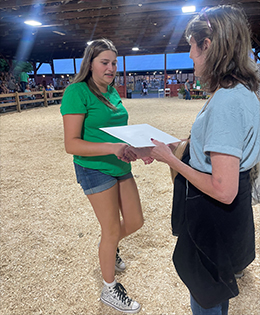 Lily White
Lily White
- Age 12
Personal or community gardens supply healthy fruits and vegetables for your family and for your community. This in turn makes our world a healthier place.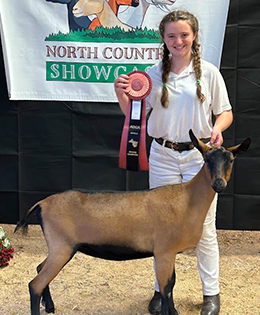 Sienna Carpentieri
Sienna Carpentieri
- Age 14
If we could simply just turn off lights when they're not in use, or wait until you are in the car to start it, we could stop polluting air and make it healthier for everyone.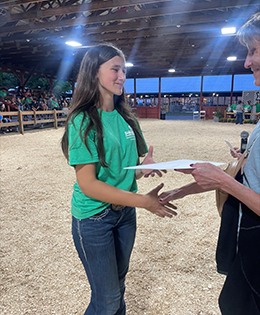 Corra DiBlasi
Corra DiBlasi
- Age 14
One of the main adavantages of having a silvopasture is that it reduces heat stress in livestock. Silvopastures can also increase wildlife diversity and improve the water quality. The livestock grazing and foraging in the silvopasture protect the soil from wind and water erosion, while also adding their excrement, which is very nutritious.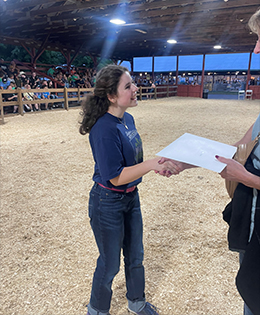 Margot LaPorte
Margot LaPorte
- Age 14
My hike [at Peach Hill Park] begins by looking all around and observing my surroundings. I notice peach and apple trees as well as large oaks and maples. While walking along the path, a Monarch butterfly rests for only a moment on a milkweed plant, and groups of cabbage moths play in the flowers. Further along the path there are fields of plants that grow wild and buzz with insect activity. The grasses, flowers and trees on both sides of the path are taller than I am and create natural walls.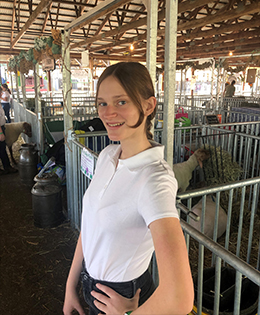 Vivien Padoleski
Vivien Padoleski
- Age 14
Livestock farmers are the backbone of America, and our world would be a very different place without them. Unfortunately, raising livestock for human consumption generates nearly 15% of total global greenhouse gas emissions. Cutting out livestock farming as a whole is not realistic. However, changing the way we farm to make it more sustainable could be.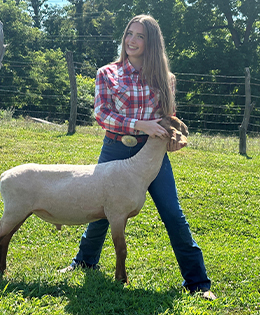 Lyris Pennock
Lyris Pennock
- Age 14
The trails [at Stony Kill Farm] are full of untouched woods with lush trees. They wind along beautiful golden fields. In the sunny and warm summer, bushes grow along the side with perfectly red berries ready for picking. Not only are the sights stunning, but the atmosphere itself allows for peace of mind and body. Taking a stroll through nature without any distractions gives much needed personal time.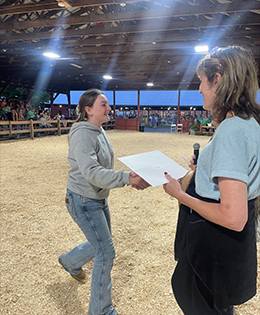 Addison Stapf
Addison Stapf
- Age 14
Ruminant animals have a reputation for eating anything, anytime, and while that may not be entirely true, they do eat plants and weeds that humans can't. This clears more land, allowing crops to be planted. Since their manure is beneficial, it will make that land more fertile.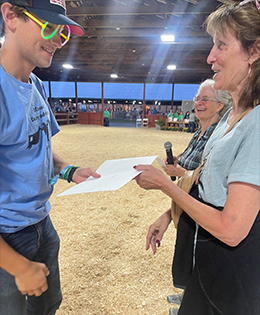 Noah White
Noah White
- Age 14
In the vast diversity of the world and nature, I really have seen the spectacular beauty of the natural world. I have also seen that everything is made for a reason and everything has its part in the world.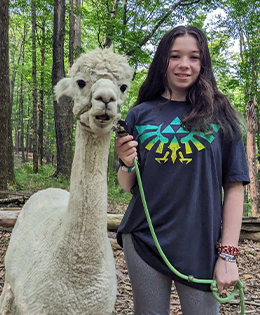 Isabella Tropea
Isabella Tropea
- Age 15
Every time I visit [Lilymoore Farm], I see a new part of the land that I haven't noticed before. They have wonderful pastures with big, beautiful, healthy-looking trees and grass that helps feed the animals and also provide shelter and shade. Not only does this help their own animals, but also the wildlife surrounding them. Fox, deer, and other wildlife have used the remaining untouched land there as homes.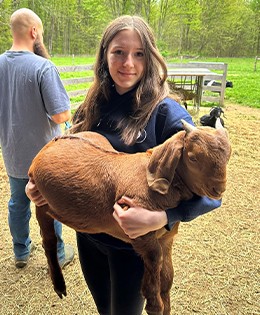 Mackenzie Phillips
Mackenzie Phillips
- Age 16
I want to see the entire world embrace each other with respect and love. If we had a world where everyone respected one another and worked for the common good, without fighting, everyone would be happier. Who knows what our planet could achieve if all people respected each other?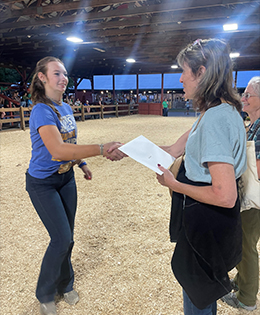 Natalie Shultz
Natalie Shultz
- Age 16
Fostering environmental sustainability is vital for the long-term health of our planet and its inhabitants. Climate change and environmental degradation pose significant threats to our wellbeing. By adopting sustainable practices, such as reducing carbon emissions, conserving natural resources, and protecting biodiversity, we can mitigate these threats. Governments, businesses, and individuals all have roles to play in this effort. For instance, transitioning to renewable energy sources, implementing stricter regulations on pollution, and encouraging sustainable consumption can all contribute to a healthier planet.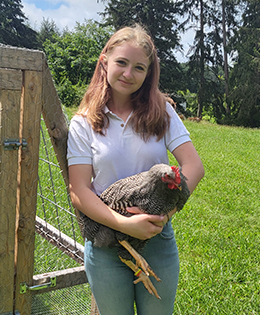 Julia Raskopf
Julia Raskopf
- Age 17
It takes a lot of hard work and effort to start a regenerative farm. Fortunately, this means once it's at a stable point, it would take even more work and effort for it to fail. I believe regenerative farming could change the way we view farms, livestock, farmers, and our environment. While this would mean fewer animals becoming meat, the way they are living now in commercial farms is not sustainable and not humane. We can give every species on this planet - people, animals, insects, plants - a better life if we take a look at how we farm.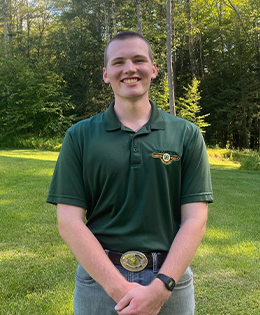 Kieran Read
Kieran Read
- Age 17
If livestock farmers compost materials, they can positively change the way their farming affects the environment. Livestock farmers can take care to properly compost different animals’ manure, including pairing manure from hogs with straw or cattle manure with shavings as just a couple examples. These pairings help break down the manure effectively to make healthy fertilizer. Through proper composting, farmers can make a positive change to their ecosystem.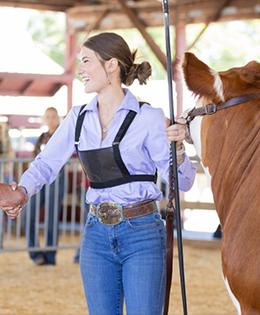 Ashley Keck
Ashley Keck
- Age 18
I believe that a good way to allow livestock farmers to thrive while also reducing damage to the environment would be to use more animals and fewer machines. Tractors and other farm equipment are extremely helpful. However, they release unwanted gases into the envionment. Oxen and draft horses could be used as substitutes that don't emit as much carbon into the atmosphere.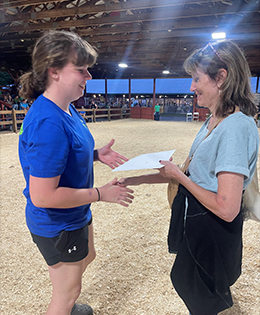 Lauryn Menz
Lauryn Menz
- Age 19
Removing invasive and non-native species of plants helps the environment and wildlife to thrive. Invasive and non-native species of plants can cause competition with native species of plants and cause them to die. The death of native plants causes habitat loss, extinction of plants and animals, and increased erosion. Replacing invasive and non-native plants with native plants is a simple way of helping the health of wildlife and the environment.
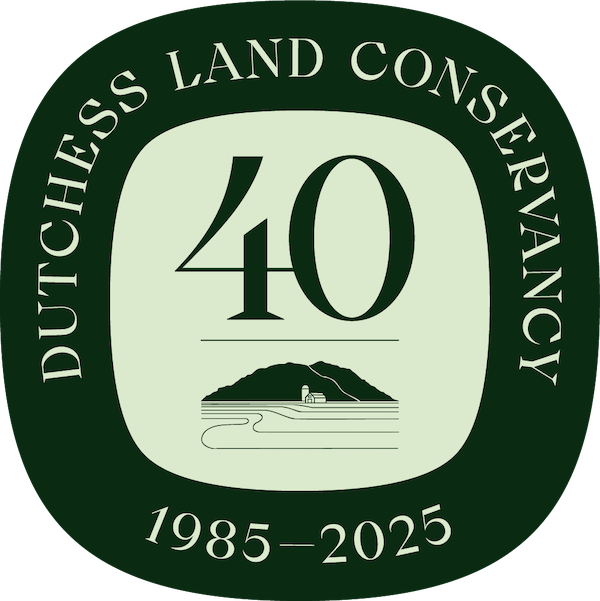

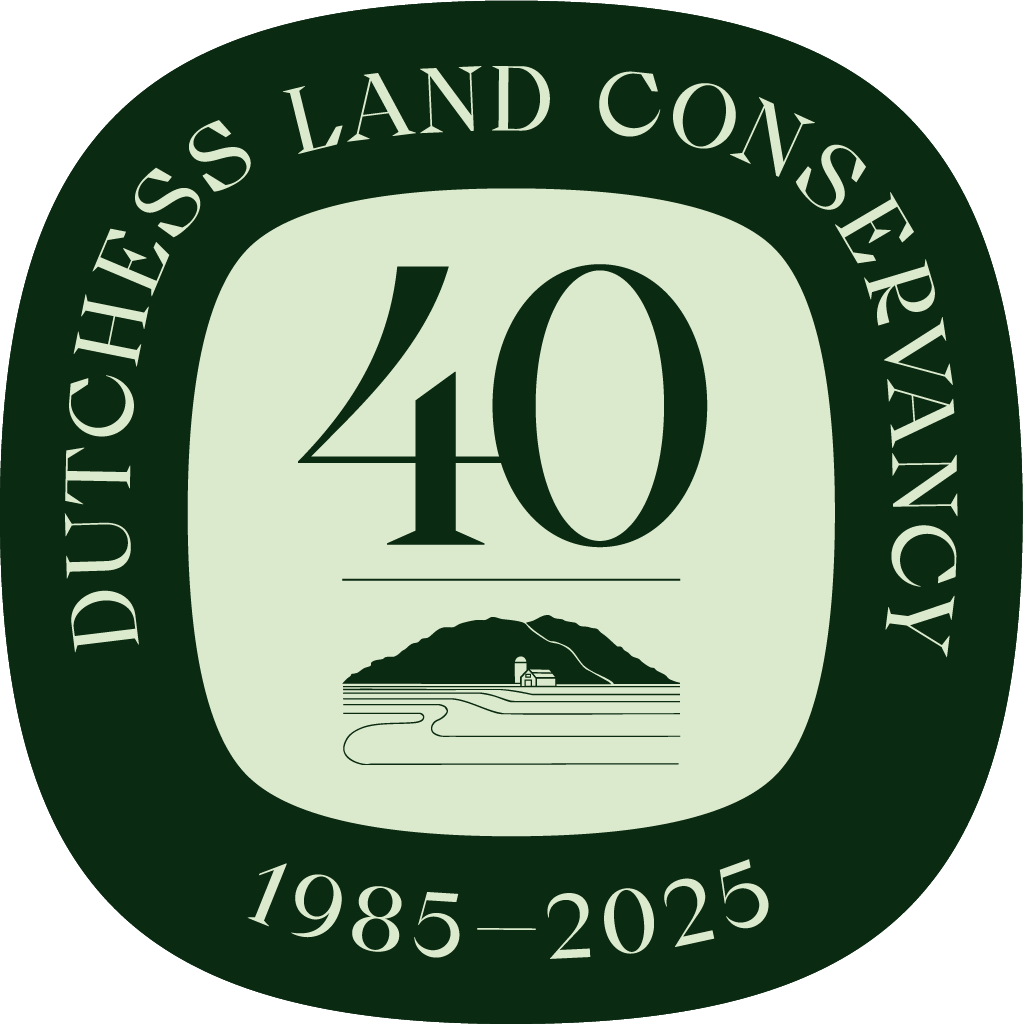 © Dutchess Land Conservancy. All Rights Reserved.
© Dutchess Land Conservancy. All Rights Reserved.








